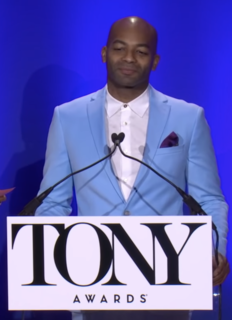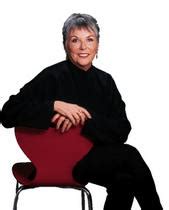A Quote by Edwidge Danticat
We all have a tendency to over generalize our individual experiences. After I've published something, I'll meet someone who says, "I'm Haitian, and I don't know this, so it must not be true." Even if we're talking about a work of fiction. I've gotten very angry myself reading many things about Haiti. We're not a monolithic group; no group is. Also, it's important to keep in mind the genre in which we are writing. Fiction is full of invented stories about exceptional people in exceptional situations. Those situations are not always cheery or celebratory.
Quote Topics
About
After
Also
Always
Angry
Be True
Even
Exceptional
Experiences
Fiction
Full
Generalize
Genre
Gotten
Group
Haiti
Haitian
Important
Individual
Invented
Keep
Know
Many
Meet
Mind
Must
Myself
Our
Over
People
Published
Reading
Says
Situations
Someone
Something
Stories
Talking
Tendency
Things
Those
True
Very
Which
Work
Writing
Related Quotes
I think it's important to humanize history; fiction can help us remember. A lot of books I've read in the past have been so much more important than textbooks - there is an emotional connection with one particular person. I'm very much of a research-is-important type of fiction writer, even for contemporary fiction. I wrote about blogs in America and I've never blogged. But I read many, many blogs - usually about feminist things, or about race, or about hair.
About a year after (my stories began being published), magazine editor George Scithers, suggested to me that since I was so new at being published, I must be very close to what I had to learn to move from fooling around with writing to actually producing professional stories. There are a lot of aspiring writers out there who would like to know just that. Write that book.SFWW-I is that book. It's the book I was looking for when I first started writing fiction.
America's exceptional nature confers upon us responsibilities. We are not exceptional because we say so; we are exceptional because, over and over, we do exceptional things - things like what Generals Marshall and MacArthur accomplished putting Europe and Japan back on their feet after World War II.
I grew up poor in crappy situations various crappy situations. What kept me sane was reading and music. I had so many different literary tastes growing up, be it fiction like Stephen King or Piers Anthony or non-fiction like reading Hunter S. Thompson essays or reading the Beats. I was a huge fan of the Beat movement.
I grew up poor in crappy situations... various crappy situations. What kept me sane was reading and music. I had so many different literary tastes growing up, be it fiction like Stephen King or Piers Anthony or non-fiction like reading Hunter S. Thompson essays or reading the Beats. I was a huge fan of the Beat movement.
I do love science fiction, but it's not really a genre unto itself; it always seems to merge with another genre. With the few movies I've done, I've ended up playing with genre in some way or another, so any genre that's made to mix with others is like candy to me. It allows you to use big, mythic situations to talk about ordinary things.
I think that I had read so much fiction that the craft itself sort of sank into me. I didn't read any 'how to' books or attend any popular-fiction-writing classes or have a critique group. For many years into my writing, I didn't even know another author. For me, a lot of reading was the best teacher.
There is this split between the Haiti of before the earthquake and the Haiti of after the earthquake. So when I'm writing anything set in Haiti now, whether fiction or nonfiction, always in the back of my mind is how people, including some of my own family members, have been affected not just by history and by the present but also by the earthquake.



































